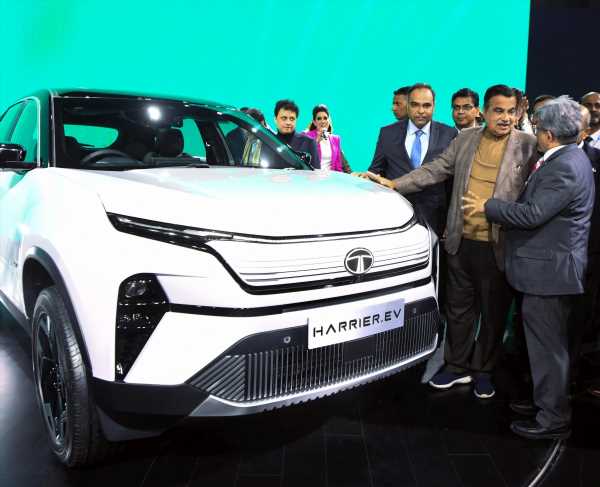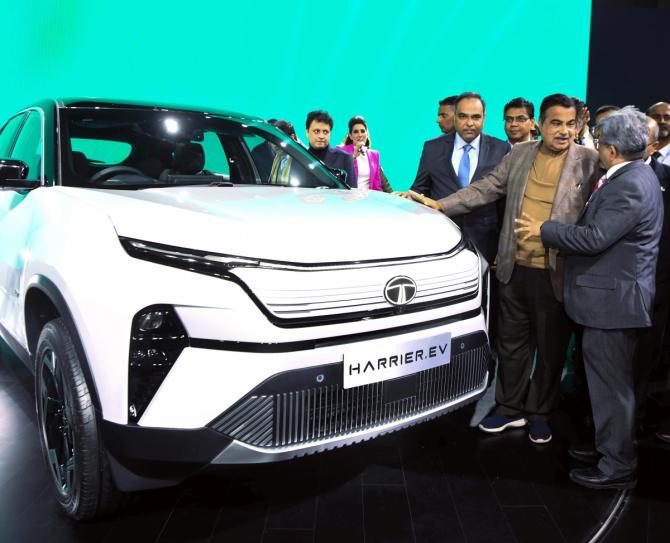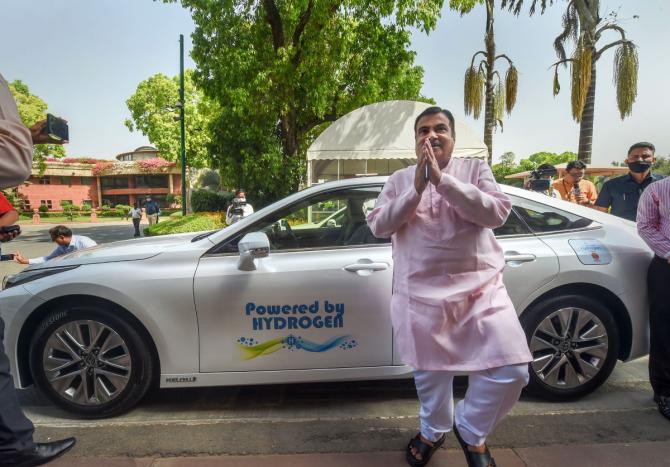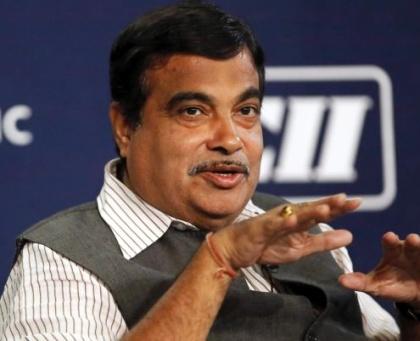‘I’m very much against petrol and diesel….’
‘I travel in an electric car.’
‘I have had a really good experience with it.’
India’s electric vehicle journey is now at an inflection point.
In an attempt to take the EV discourse to the next level, Business Standard organised an evening of conversations on some of the most electric topics.
In a fireside chat at the Business Standard EV Dialogues in New Delhi, Union Minister of Road Transport and Highways Nitin Gadkari shared his views on what would drive e-mobility, the need for subsidies, global competition, Tesla and more.
Do you think at the policy level, things should have been better on EVs?
Absolutely, 100 per cent. Presently, the potential of the EV market, according to Niti Aayog statistics, is Rs 16 trillion by 2030.
At the same time, we are expecting to export more. Our auto industry was at number four.
A month ago, we surpassed Japan and now we are at number three.
The first number is China, second is the US and third is India.
My dream and mission are to make the Indian auto industry worth at least Rs 30 trillion. I feel there will be huge exports.
We have a big potential for electric buses. I feel within five years, 60 per cent of buses will be electric. Right now, only 1 per cent is.
Will that include private buses?
Yes, it will. As transport minister, I am always impressed by London Transport.
There are nine operators and buses belong to operators with public-private investments.
The conductor belongs to the (transport) corporation, and the drivers belong to the corporation and private operators.
There are cameras through which you can use your card at the time of entering and exiting the bus.
Through such an electronic system, we can reduce losses. On the basis of that, I’m suggesting that manufacturers should make buses with that design.
It will be 100 per cent possible to make our state transport profitable.
Coming to the target of 2030, are the numbers too lofty? What are the challenges on the way and do you think those targets will be achieved?
India’s EV market is expected to grow to 1 crore (10 million) units of annual sales and create 5 crore (50 million) direct and indirect jobs by 2030.
That will be a good picture. At the same time, we are working on flex fuel vehicles.
We have just launched one pilot project in Bengaluru by adding 20 per cent methanol to diesel.
Now, Ashok Leyland and Tata have also got such buses and trucks where ICE vehicles can use hydrogen.
So there’s a lot of development going on and I feel that an alternative fuel will be a great source for the country.
The policy will include the following–import, substitute, cost-effective, pollution free, and indigenous.
Are we talking of a Jio moment for EVs?
It is just the start. When you start any new technology, new products, some teething troubles are always there.
I feel that in due course of time, we will resolve the problem.
In August, Toyota is also going to launch its flex engine vehicle.
What are your thoughts on subsidies?
Today, it is a policy decision with the permission of the finance minister.
I have had discussions with the finance minister and other concerned people, but it doesn’t come under my ministry’s purview.
But, in sync with what other countries are doing globally, are we offering the right kind of subsidy? And, is it being given the right way?
If the manufacturing number has increased, my honest opinion is that we do not need a subsidy. But still, the government is supporting. And, after that, it is up to the finance ministry to take a decision on it.
Do you think that Tesla will be a turning point for the EV revolution in India? Or do you believe our domestic manufacturers are good enough?
The EV revolution in India has already started and all are welcome. I travel in an electric car.
Indian manufacturers are also making good-quality EVs. I have had a really good experience with it.
At the same time, if Tesla wants to come, we do not have any problem. We will support them.
Has the Tesla top team had discussions with you?
We have discussed the issue a number of times.
Actually, at the time of the prime minister’s visit to the US, there was an interaction as well.
I feel that in due course of time, Tesla will come to India. Because India has got a huge domestic market and that is going to be a win-win situation for both.
We had a panel discussion on ‘atmanirbharta’ and whether India can be ‘atmanirbhar’ in EVs. What is your view?
In Jammu and Kashmir, the department of mining has identified lithium mines.
Every year import of lithium-ion is 1,200 tonnes.
When I was with Jammu and Kashmir LG (lieutenant governor
At the same time, we are working on alternative chemistry like zinc, aluminum ion, silicon ion. Aluminum ion is a successful experiment.
The GST on EVs is 5 per cent whereas the retrofitted cars are being charged 18 per cent GST. Will it not create issues with deepening of the market?
I will take this proposal to the finance minister. This (EV retrofitment) is also good because two-wheelers, three-wheelers, and cars can be converted which will be a good thing for the poor people.
We will support it. If players in this industry are able to give good alternatives, customers would buy.
EVs are close to your heart and you have been travelling in a car that runs on renewable energy. Do you have Cabinet colleagues doing the same?
(Laughs) I’m telling you I’m very much against petrol and diesel… So I’m campaigning to people so that they use EVs and alternative fuel.
Use anything but not fossil fuel because pollution is a big concern…
Two to three ministers are now using electric cars and now the government has asked departments to replace cars which are 15 years and more. Probably, a majority of the new cars will be EVs.
Feature Presentation: Rajesh Alva/Rediff.com
Source: Read Full Article





